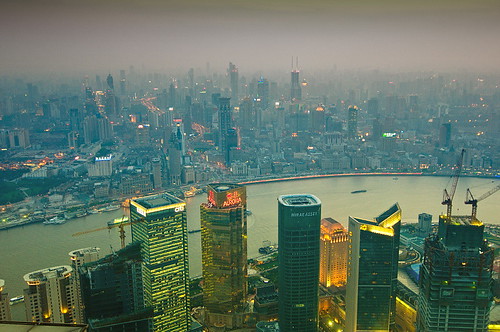The Megalopolis and Climate Change
Tim Hall | December 2, 2010.
I just attended a very interesting side event on China, climate change and developing nations. One point in particular stood out to me: the role of cities in acting on climate change, particularly in the Global South.
It reminded me of a Foreign Policy article I recently read, which mirrors much of the literature by hyper-globalizers on the ‘end of the nation-state’ and the increasing importance of cities.
One speaker noted that the role of cities in the Global South is vital to combating climate change, as while states in these countries are often very centralized, they in effect have little to no control over the megalopolises emerging all over the globe, with booming populations and growing skylines.
Over the last couple of years we have seen the UNFCCC grow increasingly irrelevant and unable to act on climate change, and now I wonder whether it is time for global mega cities to work together, rather than relying on the tired system based around the nation-state.
The Chinese delegate present acknowledged the decentralized manner in which China’s emission reductions and avoidances are implemented. In the current five year plan, targets and objectives are divided for various provinces and cities. In the upcoming 12th five year plan the delegate mentioned that a possible further carbon tester target may be added to provinces and cities, and that China is even considering allocating targets to key sectors.
This sounds like an acknowledgment that nation-states and individuals can only do so much. It in the key players in the global economy – megalopolises such as Shanghai, London, New York, Lagos, Tokyo and large emitting sectors such of industrial production – that can cooperate their measures to cut emissions and act on environmental degradation.
Or does the fact that sprawling megalopolises exist instead highlight the lack of control anyone has in human activity?
Just some brief thoughts while I enjoy lunch. What do you think? Is the nation-state still relevant in combating climate change? Should the COP process involve leaders and key players from cities more? And what are your thoughts on cities in the Global South in regards to climate change? Should financial transfers instead go directly to them?












comment